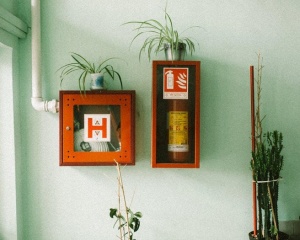
Fire presents a risk anywhere it occurs – from wildfires in dry forests to accidents and mishaps at an academic conference. If you’re a conference organizer, you should not underestimate this threat.
Structural fires can be devastating and dangerous when gathering for a conference. Local safety codes will guide public protection measures and requirements, but the prevention does not end there. As a host for a conference, you have the responsibility to practice smart fire safety to protect your attendees.
Fire prevention involves many factors. Some of the essential tips are as follows.
Assess the Risks
There is a plethora of handbooks and publications centered on educating people about fire safety and applicable codes. When selecting a conference venue, you should be familiar with these codes and recommendations. Keep in mind these codes might vary based on state or local ordinances. If you travel for conferences and use a rotation of locations, you should know the codes in each location.
Some local governments allow you to request fire marshal safety inspections. If this is an option, take advantage of it. A marshal can inspect your site and provide a risk assessment and recommendations.
If the inspection is not an option, use the resources available to assess your property and institute necessary changes. You can also request assessments from experts in the area, such as professionals who specialize in Florida home restoration from fire damage, to ask them about risk analysis.
Invest in the Equipment
One of the best protection measures is merely having the right equipment on hand. For most conference locations, this equipment is an automatic sprinkler system for primary fire protection.
This system – and all other fire safety equipment – should be subject to regular testing and replacement. You certainly do not want to find out your sprinkler system is not working when a fire starts! A faulty system can destroy the site.
Other standard equipment includes smoke detectors and extinguishers. Ideally, both will be on every floor, and each volunteer or conference staff member will be well aware of the extinguishers’ location. When coordinating with a conference venue, ask about these protective measures and the equipment’s last test date.
Preparation
While property is salvageable and replaceable, lives are not. One of the most critical steps of fire safety is to prepare volunteers and staff members. Fire safety tips include:
- Fire Plan: All volunteers/staff should know what to do in case of a fire. While a drill for all conference attendees might not be possible, you could incorporate training into the volunteer orientation. Use this time to highlight the best exit routes and basic safety procedures.
- Safety Officer: A great option is to designate someone to serve as the fire prevention officer. This person will help identify escape routes and safe meeting points while keeping this information updated. They can ensure new staff and volunteers are aware of this information during onboarding.
- Appliance Safety: Appliance malfunctions or misuse can quickly start a fire. Make sure you leave space for appliances to heat up and give time to cool down. All appliances should be away from combustible materials and unplugged at the end of the day.
- Wire Replacement: Power cords should undergo inspection for broken connectors, fraying, or cracked insulation. Fault wires require immediate replacement, and employees should be aware of maximum wattage so they do not overload the power strips – which can lead to a fire.
- Evacuation Plan: Post evacuation plans around the conference venue; these escape routes should not include elevators. If you have attendees with disabilities, this evacuation plan should account for that and the additional assistance that would be necessary.
- First Aid: If there are fire injuries, staff and volunteers should be able to locate first aid kits, and these kits should be in central locations. The venue might even provide these kits.
- Equipment Education: Part of your fire safety education should include demonstrating how fire extinguishers work. It does not help to have extinguishers if no one knows how to use them!
Conclusion
Even the most prepared conference host and venue can fall victim to a fire. As a host, it is your job to institute safety measures for the good of your conference attendees and volunteers. Time is of the essence when a fire is happening, so volunteers/staff need to be able to respond correctly, safely, and quickly. Consider consulting an expert for risk analysis and assessment for the best outcome and peace of mind.
